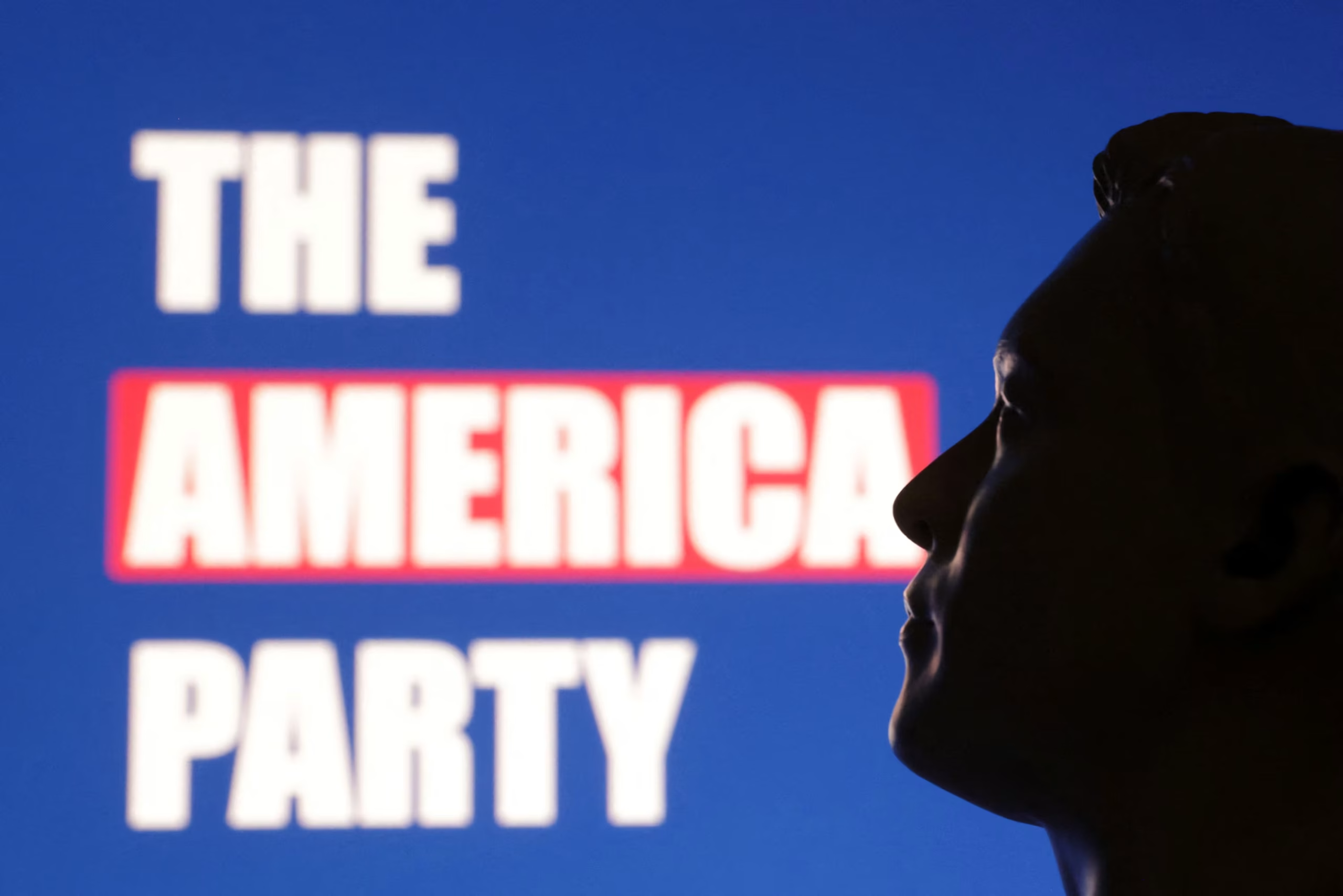Summary
-Musk’s America Party aims to attract disaffected Democrats and Republicans
-Experts say creating a viable third party requires long-term commitment
-Independent candidates historically struggle against major-party advantages
-Musk’s appeal overlaps with existing Republican base, limiting new-party impact
Musk described his new party on his platform X as tech-centric, budget-conscious, pro-energy and centrist, with the goal of drawing both disaffected Democrats and Republicans. Musk has criticized the tax-cut bill, which is forecast to add about $3.4 trillion to the United States’ national debt.
“There are just very, very significant barriers to the creation of a viable third party,” said David A. Hopkins, a political science professor at Boston College. He said challenges include building party infrastructure, organizing volunteers and qualifying for the ballot.
“What the independent space has been lacking has been resources,” Jolly said. “It’s more than filing with the Federal Election Commission. It’s really starting 50 state parties. You’re talking about $100 million just to enter the space with real serious intent.”
In 2016, former New York Mayor Michael Bloomberg, another billionaire, reached a similar conclusion, rejecting the idea of running for president as an independent, saying that such a candidate would have “no chance of winning.
“What we have seen is an Elon Musk who is not disciplined … enough to change American politics,” Jolly said.
Musk’s office did not respond to a request for comment. Tesla shares closed nearly 7% lower on Monday as investors grew uneasy over Musk’s shifting focus away from the company.
 Tesla CEO and X owner Elon Musk speaks next to Republican presidential nominee and current U.S. President Donald Trump during a campaign rally at the site of the July assassination attempt against Trump, in Butler, Pennsylvania, U.S., October 5, 2024.
Tesla CEO and X owner Elon Musk speaks next to Republican presidential nominee and current U.S. President Donald Trump during a campaign rally at the site of the July assassination attempt against Trump, in Butler, Pennsylvania, U.S., October 5, 2024.
PLAYING SPOILER
Musk could have taken a more traditional route, such as using his political action committee to support Republican primary challengers to pro-Trump incumbents ahead of next year’s midterm elections, which will determine control of Congress.
Not all of his political bets have paid off. In April, he invested millions in a Wisconsin Supreme Court race, only to see his preferred candidate lose. His attempts to persuade Republicans in Congress to oppose Trump’s tax bill were also unsuccessful.
It is unclear how effective he would be in backing independents in a handful of competitive U.S. House of Representatives races. As it is, the roughly three-dozen races deemed competitive by nonpartisan analysts are often already swamped with cash from political parties and outside fundraisers, and the candidates themselves typically are ideologically more moderate – which would make it harder for Musk’s candidates to differentiate themselves.
Trump mocked Musk’s political ambitions on Sunday. “Third parties have never worked, so he can have fun with it, but I think it’s ridiculous,” he told reporters.
Complicating Musk’s plans is that many voters dislike him. Any role he plays in an election is sure to become part of the debate. Musk is viewed less favorably than Trump by the American public at large – just 36% of respondents to a June Reuters/Ipsos poll had a favorable view of Musk compared with 42% who viewed Trump favorably, while 59% of respondents have an unfavorable view of him compared with 55% who viewed Trump unfavorably.
“Musk himself is not very popular, and his appeal has a huge overlap with the existing Republican coalition,” said Hans Noel, a political scientist at Georgetown University. “There really isn’t an unrepresented movement that he’s speaking for… he’s unlikely to elect many America Party candidates.”







